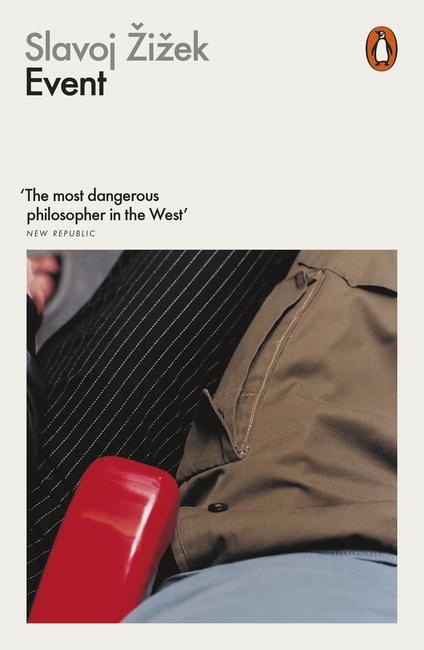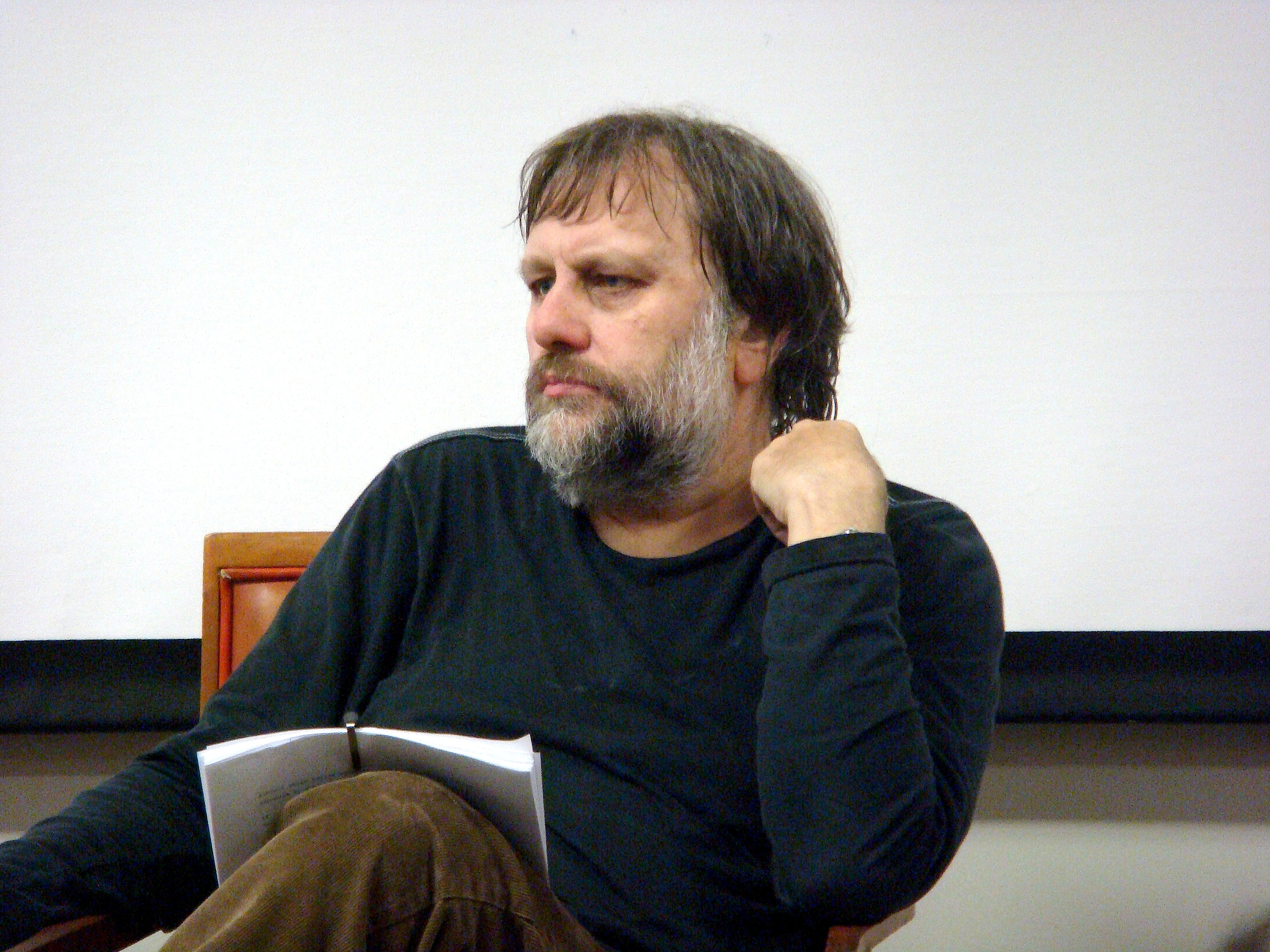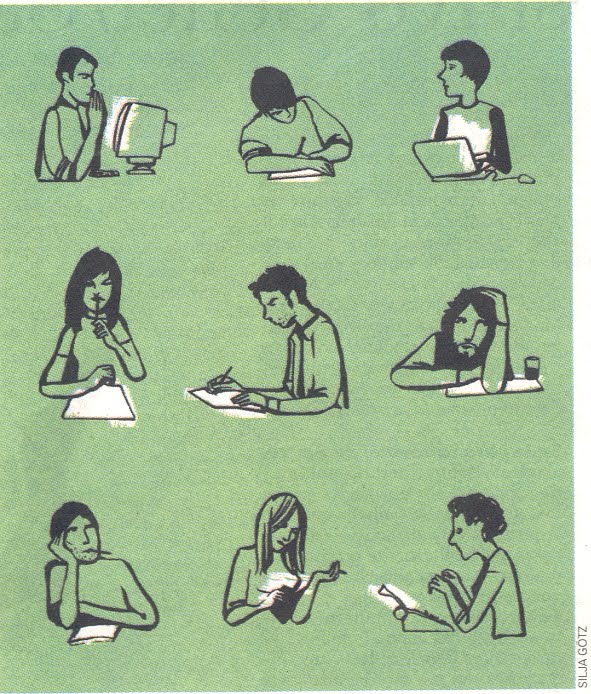 |
| www.penguin.com.au |
todos abordo – o
acontecemento en tránsito
All Aboard – Event In
Transit
‘un tsunami matou máis de 200000
persoas en Indonesia!’ ‘un fotógrafo sensacionalista captou unha instantánea da
vaxina de Britney Spears!’ ‘finalmente decateime que teño que deixalo todo e
botarlle unha man!’ ‘o brutal golpe esnaquizou todo o país!’ ‘gañou o pobo! O
ditador fuxiu!’ ‘como pode ser que exista algo tan fermoso como a última sonata
para piano de Beethoven?’
‘A tsunami killed more than
200000 people in Indonesia!’ ‘A paparazzo snapped Britney Spears’ vagina!’ ‘I
finally realized I have to drop everything else and help him!’ ‘The brutal
takeover shattered the entire country!’ ‘The people have won! The dictator has
run away!’ ‘How is something as beautiful as Beethoven’s last piano sonata even
possible?’
todas estas afirmacións refírense ao
que cando menos algúns de nós considerariamos un acontecemento – unha noción
anfibia con incluso máis de cincuenta sombras de gris. Un ‘acontecemento’ pode
referirse a un desastre natural devastador ou ao escándalo do último ‘famosete’,
o triunfo do pobo ou unha brutal carga policial, unha intensa experiencia en
presenza dunha obra de arte ou unha decisión íntima. Dadas todas estas
variantes, non hai outra maneira de poñer orde no enigma da definición que arriscase,
subir ao tren e comezar a nosa viaxe cunha definición aproximada de
acontecemento.
All these statements refer to
that which at least some of us would consider an event – an amphibious notion
with even more than fifty shades of grey. An ‘Event’ can refer to a devastating
natural disaster or to the latest celebrity scandal, the triumph of the people
or a brutal political change, an intense experience of a work of art or an intimate
decision. Given all these variations, there is no other way to introduce order
into the conundrum of definition than to take a risk, board the train and start
our journey with an approximate definition of event.
Agatha Christie inicia o das 4:50 procedente de Paddington no medio dunha viaxe en tren
desde Escocia a Londres, onde Elspeth McGillicuddy, de camiño a visitar a súa
vella amiga Jane Marple, ve como esganan unha muller no compartimento dun tren
que pasa (o das 4:50 procedente de Paddington). Todo sucede moi rápido e a súa
visión é borrosa, así a policía non se toma en serio a Elspeth porque non hai
evidencia de delito; só a señorita Marple cre a súa historia e comeza a
investigar. Este é un acontecemento na súa forma máis pura e máis mínima: algo
chocante, fóra do común, que semella acontecer totalmente de súpeto e
interrompe o discorrer normal das cousas; algo que emerxe parece que de
ningures, sen causas discernibles, unha aparición sen fundamentos sólidos.
Agatha Christie’s 4.50 from Paddington opens in the middle
of a journey on a train from Scotland to London, where Elspeth McGillicuddy, on
the way to visit her old friend Jane Marple, sees a woman being strangled in
the compartment of a passing train (the 4.50 from Paddington). It all happens
very fast and her vision is blurred, so the police don’t take Elspeth’s report
seriously as there is no evidence of wrongdoing; only Miss Marple believes her
story and starts to investigate. This is an event at its purest and most
minimal: something shocking, out of joint, that appears to happen all of a
sudden and interrupts the usual flow of things; something that emerges
seemingly out of nowhere, without discernible causes, an appearance without
solid being as its foundation.
hai por definición, algo ‘milagroso’
nun acontecemento, desde os milagres das nosas vidas diarias ata aqueles das
esferas máis sublimes, incluída a divina. A natureza do cristianismo como
acontecemento provén do feito de que ser cristián require unha crenza nun
acontecemento singular – a morte e resurrección de Cristo. Quizás incluso máis
fundamental é a relación circular entre a crenza e as súas razóns: non podo
dicir que creo en Cristo porque, por certas razóns, estaba convencido para
crer; é só cando creo que podo comprender as razóns para facelo. A mesma
relación circular aplícase ao amor: non me namoro por razóns concretas (os seus
beizos, o seu sorriso, …) – é porque xa a amo que os seus beizos, … me atraen.
Isto é porque o amor, tamén, ten que ver co acontecemento. É unha manifestación
dunha estrutura circular na que o efecto do acontecemento determina as súas
causas ou razóns de xeito retroactivo. E o mesmo se aplica a un acontecemento
político como as prolongadas protestas da praza Tahrir en Cairo que derrubaron
o réxime de Mubarak: poden explicarse as protestas de xeito doado como
resultado de impases específicos na sociedade exipcia (xuventude desempregada,
educada sen perspectivas claras, …), pero, dalgún xeito, ningunha delas pode
explicar a enerxía sinerxética que fixo nacer o que seguiu a continuación.
There is, by definition,
something ‘miraculous’ in an event, from the miracles of our daily lives to
those of the most sublime spheres, including that of the divine. The eventual
nature of Christianity arises from the fact that to be a Christian requires a
belief in a singular event – the death and resurrection of Christ. Perhaps even
more fundamental is the circular relationship between belief and its reasons: I
cannot say that I believe in Christ because I was convinced by the reasons for
belief; it is only when I believe that I can understand the reasons for belief.
The same circular relation holds for love: I do not fall in love for precise
reasons (her lips, her smile …) – it is because I already love her that her
lips, … attract me. This is why love, too, is eventual. It is a manifestation
of a circular structure in which the eventual effect retroactively determines
its causes or reasons. And the same holds for a political event like the
prolonged protests on Tahrir Square in Cairo which toppled the Mubarak regime:
one can easily explain the protests as the result of specific deadlocks in
Egyptian society (unemployed, educated youth with no clear prospects, …), but,
somehow, none of them can really account for the synergetic energy that gave
birth to what went on.
do mesmo xeito, a aparición dunha
nova forma artística é un acontecemento. Tomemos o exemplo do cine negro. Nunha
análise detallada, Marc Vernet
demostra que todas as características principais que constitúen a definición
común de cine negro (iluminación chiaroscuro,
plano holandés, o universo paranoico da novela hard-boiled coa corrupción elevada a unha característica metafísica
cósmica personificada na femme fatale)
xa eran parte das películas de Hollywood. Sen embargo, o enigma que permanece é
a misteriosa eficiencia e persistencia da noción de negro: canta máis razón ten
Vernet en canto aos feitos, cantas máis causas históricas ofrece, más
enigmático e inexplicable se volven a extraordinaria fortaleza e lonxevidade
desta noción ‘ilusoria’ de negro – a noción que ten perseguido a nosa
imaxinación durante décadas.
In the same way, the rise of a
new art form is an event. Let us take the example of film noir. In his detailed analysis, Marc Vernet demonstrates that
all the main features that constitute the common definition of film noir (chiaroscuro lighting, askew camera angles, the paranoiac universe
of the hard-boiled novel with corruption elevated to a cosmic metaphysical
feature embodied in the femme fatale)
were already present in Hollywood films. However, the enigma that remains is
the mysterious efficiency and persistence of the notion of noir: the more Vernet is right at the level of facts, the more he
offers historical causes, the more enigmatic and inexplicable becomes the
extraordinary strength and longevity of this ‘illusory’ notion of noir – the notion that has haunted our
imagination for decades.
nunha primeira aproximación, un
acontecemento é así o efecto que semella
exceder as súas causas – e o espazo
dun acontecemento é o que se abre polo oco que separa un efecto das súas
causas. Xa con esta definición aproximada atopámonos no corazón mesmo da
filosofía, posto que a causalidade é un dos problemas básicos dos que trata a
filosofía: están todas as cousas conectadas por vínculos causais? Todo o que
existe ten que estar fundamentado en razóns suficientes? Ou hai cousas que
dalgún xeito xorden a partir da nada? Como, entón, pode axudarnos a filosofía a
determinar o que é un acontecemento – unha ocorrencia non fundamentada en
razóns suficientes – e como é posible?
At first approach, an event is
thus the effect that seems to exceed its
causes – and the space of an
event is that which opens up by the gap that separates an effect from its
causes. Already with this approximate definition, we find ourselves at the very
heart of philosophy, since causality is one of the basic problems philosophy
deals with: are all things connected with casual links? Does everything that
exists have to be grounded in sufficient reasons? Or are there things that
somehow happen out of nowhere? How, then, can philosophy help us to determine
what an event - an occurrence not grounded in sufficient reasons – is and how
it is possible?
 |
| sl.wikipedia.org |
desde os seus inicios, a filosofía
semella oscilar entre dous enfoques: o transcendental e o ontolóxico ou óntico.
O primeiro ten que ver coa estrutura universal de cómo se nos presenta a
realidade. Que condicións deben cumprirse para que percibamos algo como
realmente existente? ‘transcendental’ é o termo técnico do filósofo para tal
esquema, que define os co-ordinados da realidade – por exemplo, o enfoque
transcendental fainos conscientes de que, para un naturalista científico, os
espíritos e significados son tamén unha parte da realidade, non só as nosas
proxeccións humanas. O enfoque óntico, polo contrario, ten que ver coa propia
realidade, na súa emerxencia e
implantación: como chegou a existir o universo? No século vinte, a
distancia entre estes dous métodos de pensamento ampliouse máis: o enfoque
transcendental acadou o seu apoxeo coa filósofo alemán Martin Heidegger (1889-1976), mentres o ontolóxico semella hoxe
secuestrado polas ciencias naturais – esperamos que a resposta á pregunta sobre
as orixes do noso universo procedan da cosmoloxía cuántica, as ciencias
cerebrais e o evolucionismo. Xusto no inicio do seu novo ‘supervendas’, o Gran Deseño, Stephen Hawkins proclama triunfal que ‘a filosofía está morta’: as
cuestións metafísicas sobre a orixe do universo, … que unha vez eran o tema de
especulacións filosóficas, poden responderse agora por medio da ciencia
experimental e ser así empiricamente comprobadas.
From its very inception,
philosophy seems to oscillate between two approaches: the transcendental and
the ontological or ontic. The first concerns the universal structure of how
reality appears to us. Which conditions must be met for us to perceive
something as really existing? ‘Transcendental’ is the philosopher’s technical
term for such a frame, which defines the co-ordinates of reality – for example,
the transcendental approach makes us aware that, for a scientific naturalist,
only spatio-temporal material phenomena regulated by natural laws really exist,
while, for a premodern traditionalist, spirits and meanings are also part of
reality, not only our human projections. The ontic approach, on the other hand,
is concerned with reality itself, in its emergence and deployment: how did the
universe come to be? In the twentieth century, the gap between these two
methods of thinking became most extreme: the transcendental approach reached
its apogee with German philosopher Martin Heidegger (1889–1976), while the
ontological one seems today kidnapped by natural sciences – we expect the
answer to the question of the origins of our universe to come from quantum
cosmology, the brain sciences and evolutionism. At the very beginning of his
new bestseller, The Grand Design,
Stephen Hawking triumphantly proclaims that ‘philosophy is dead’: metaphysical
questions about the origin of the universe, … which were once the topic of
philosophical speculations, can now be answered through experimental science
and thus empirically tested.
o que non pode deixar de sorprender
ao viaxante é que ambos enfoques culminan nalgunha noción de Acontecemento: o
Acontecemento da revelación do Ser – do horizonte de significado que determina
como percibimos e nos relacionamos coa realidade – no pensamento de Heidegger;
e, no Big Bang (ou simetría rota), o Acontecemento primordial do que xurdiu
todo o noso universo, no enfoque óntico, defendido pola cosmoloxía cuántica.
What cannot but strike the
traveler is that both approaches culminate in some notion of Event: the Event
of the disclosure of Being – of the horizon of meaning which determines how we
perceive and relate to reality – in Heidegger’s thought; and, in the Big Bang
(or broken symmetry), the primordial Event out of which our entire universe
emerged, in the ontic approach, upheld by quantum cosmology.
a nosa primeira definición tentativa
de acontecemento como un efecto que excede as súas causas retrotráenos así a
unha multiplicidade inconsistente: é un acontecemento un cambio do xeito no que
a realidade se nos aparece, ou é unha transformación devastadora da propia
realidade? Reduce a filosofía a autonomía dun acontecemento, ou pode explicar a
súa propia autonomía? Polo tanto, de novo: hai unha maneira de introducir algún
tipo de orden neste enigma? O procedemento obvio tería sido clasificar os
acontecementos en especies e subespecies – para diferenciar entre acontecementos
materiais e inmateriais, entre acontecementos artísticos, científicos,
políticos e íntimos, … Sen embargo, tal enfoque ignora a característica básica
dun acontecemento: a emerxencia sorprendente de algo novo que mina todos os
esquemas estables. A única solución apropiada é, polo tanto, acercarse aos
acontecementos dun xeito ‘acontecemental’ – pasar dunha noción a outra por
medio da afloración dos impases que saturan cada unha, para que a nosa viaxe
atravese as transformacións da propia universalidade, acercándose – así o
espero – ao que Hegel denominou ‘universalidade concreta’, unha universalidade
que non só é o contedor baleiro do seu contido particular, pero que procrea
este contido por medio da implantación dos seus antagonismos, impases e
inconsistencias inmanentes.
Our first tentative definition of
event as an effect which exceeds its cases thus brings us back to an
inconsistent multiplicity: is an event a change in the way reality appears to
us, or is it a shattering transformation of reality itself? Does philosophy
reduce the autonomy of an event, or can it account for this very autonomy? So
again: is there a way to introduce some order into this conundrum? The obvious
procedure would have been to classify events into species and subspecies – to
distinguish between material and immaterial events, between artistic,
scientific, political and intimate events, … However, such an approach ignores
the basic feature of an event: the surprising emergence of something new which
undermines every stable scheme. The only appropriate solution is thus to
approach events in an evental way – to pass from one to another notion of event
by way of bringing out the pervading deadlocks of each, so that our journey is
one through the transformations of universality itself, coming close – so I
hope – to what Hegel called ‘concrete universality’, a universality which is
not just the empty container of its particular content, but which engenders
this content through the deployment of its immanent antagonisms, deadlocks and
inconsistencies.
imaxinemos, por tanto, que estamos
nunha viaxe de metro con moitas estacións e conexións, con cada estación
representando unha definición putativa de acontecemento. A primeira estación
será un cambio ou desintegración do marco por medio do que aparece a realidade
ante nós; a segunda, unha Caída relixiosa. Seguida pola ruptura da simetría; a
Ilustración budista; un encontro coa verdade que devasta a nosa vida corrente;
a experiencia do ser como ocorrencia acontecemental; a inmanencia da ilusión da
verdade que fai acontecemental a propia verdade; un trauma que desestabiliza a
orde simbólica na que habitamos; a aparición dun novo ‘Gran Significante’, un
significante que estrutura un campo semántico completo; a experiencia do puro
fluír do (non)sentido; unha ruptura política radical; e a ruína dun logro
acontecemental. A viaxe será accidentada pero excitante, explicaranse moitas
cousas no traxecto. Así, sen máis delongas, comecemos!
Let us then imagine that we are on a subway trip with many stops and connections, with each stop standing for a putative definition of event. The first stop will be a change or disintegration of the frame through which reality appears to us; the second, a religious Fall. This is followed by the breaking of symmetry; Buddhist Enlightment; an encounter with Truth that shatters our ordinary life; the experience of the self as a purely evental occurrence; the immanence of illusion to truth which makes truth itself evental; a trauma which destabilizes the symbolic order we dwell in; the rise of a new ‘Master-Signifier’, a signifier which structures an entire field of meaning; the experience of the pure flow of (non)sense; a radical political rupture; and the undoing of an evental achievement. The journey will be bumpy but exciting, and much will be explained along the way. So, without further ado, let’s begin!
Let us then imagine that we are on a subway trip with many stops and connections, with each stop standing for a putative definition of event. The first stop will be a change or disintegration of the frame through which reality appears to us; the second, a religious Fall. This is followed by the breaking of symmetry; Buddhist Enlightment; an encounter with Truth that shatters our ordinary life; the experience of the self as a purely evental occurrence; the immanence of illusion to truth which makes truth itself evental; a trauma which destabilizes the symbolic order we dwell in; the rise of a new ‘Master-Signifier’, a signifier which structures an entire field of meaning; the experience of the pure flow of (non)sense; a radical political rupture; and the undoing of an evental achievement. The journey will be bumpy but exciting, and much will be explained along the way. So, without further ado, let’s begin!
primeiro capítulo de - first chapter in
o acontecemento: a
filosofía en tránsito
Slavoj Žižek
tradución mala por @xindiriz

Ningún comentario:
Publicar un comentario